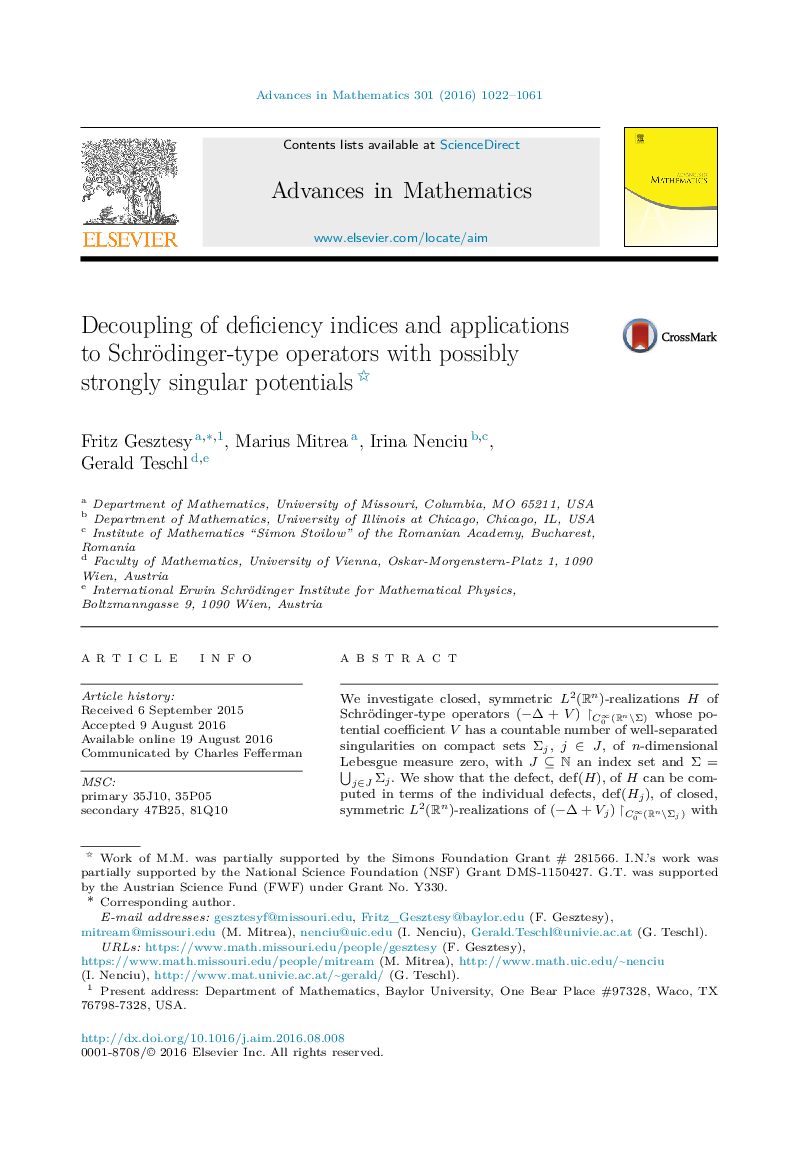| Article ID | Journal | Published Year | Pages | File Type |
|---|---|---|---|---|
| 4665066 | Advances in Mathematics | 2016 | 40 Pages |
We investigate closed, symmetric L2(Rn)L2(Rn)-realizations H of Schrödinger-type operators (−Δ+V)↾C0∞(Rn∖Σ) whose potential coefficient V has a countable number of well-separated singularities on compact sets ΣjΣj, j∈Jj∈J, of n -dimensional Lebesgue measure zero, with J⊆NJ⊆N an index set and Σ=⋃j∈JΣjΣ=⋃j∈JΣj. We show that the defect, def(H)def(H), of H can be computed in terms of the individual defects, def(Hj)def(Hj), of closed, symmetric L2(Rn)L2(Rn)-realizations of (−Δ+Vj)↾C0∞(Rn∖Σj) with potential coefficient VjVj localized around the singularity ΣjΣj, j∈Jj∈J, where V=∑j∈JVjV=∑j∈JVj. In particular, we provedef(H)=∑j∈Jdef(Hj), including the possibility that one, and hence both sides equal ∞. We first develop an abstract approach to the question of decoupling of deficiency indices and then apply it to the concrete case of Schrödinger-type operators in L2(Rn)L2(Rn).Moreover, we also show how operator (and form) bounds for V relative to H0=−Δ↾H2(Rn)H0=−Δ↾H2(Rn) can be estimated in terms of the operator (and form) bounds of VjVj, j∈Jj∈J, relative to H0H0. Again, we first prove an abstract result and then show its applicability to Schrödinger-type operators in L2(Rn)L2(Rn).Extensions to second-order (locally uniformly) elliptic differential operators on RnRn with a possibly strongly singular potential coefficient are treated as well.
